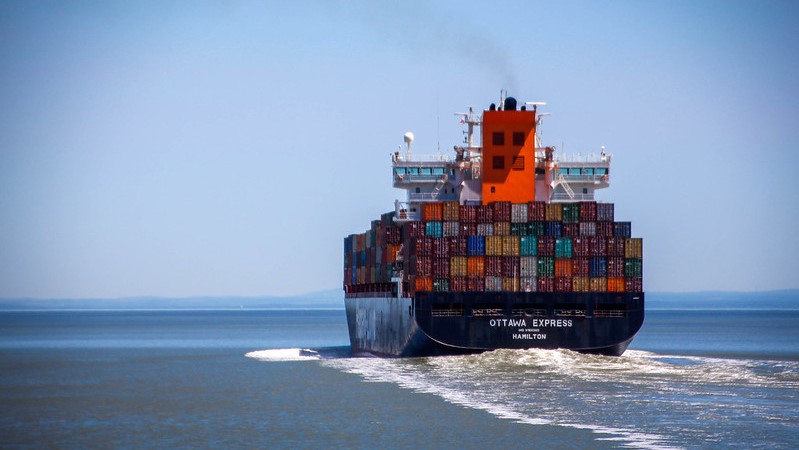If international shipping were a country, its emissions would be the sixth largest in the world – larger than Germany’s.
The EU is thankfully beginning to regulate these emissions through a number of policy proposals under negotiation, including a marine fuel standard (the FuelEU Maritime) and adding shipping to the EU emissions trading system (EU ETS).
But many countries beyond the EU, goaded by the shipping industry, have been arguing that the only climate regulation of shipping should be global. This is not only extremely lazy given the sheer scale of the climate crisis, but it is also illegal in the face of obligations under the Paris Agreement.
Legally, all Paris Agreement signatories have committed to keeping temperature increases well below 2C and aiming for no more than 1.5C. This, combined with the legal obligations in the Law of the Sea Convention that require the protection of marine ecosystems, places a hard obligation on all states to reduce emissions from international shipping.
This legal obligation falls on individual countries. If there was ambitious regulation agreed at the UN’s shipping regulator, the International Maritime Organization (IMO), that would drive emission cuts in line with the Paris Agreement, then that legal obligation would be fulfilled and there would be no further requirement for any country to act.
The IMO has been considering what to do about shipping emissions for over two decades, but so far has made almost no impact so national governments are still on the hook.
And the obligation is not just to act, the legal obligation is to achieve an outcome. By signing the Law of the Sea Convention, countries are obliged to protect the marine environment from pollution, including atmospheric pollution, and to protect and preserve the marine environment. Countries that violate this obligation are leaving themselves vulnerable to potential litigation from countries most vulnerable to climate change.
There has been an increase in climate justice cases using international courts. Ralph Regenvanu, Vanuatu’s foreign minister, has advocated for the use of litigation in international courts to act on the causes and consequences of the climate crisis. Vanuatu has called on the International Court of Justice to prepare a climate litigation toolkit to address the damage done to Vanuatu and other vulnerable nations by climate change.
We could also see the lack of action on shipping being challenged in the future.
EU policymakers must urgently strengthen the draft rules to phase out fossil fuels in shipping as quickly as possible, or face potential international litigation. The current EU proposals must be considerably improved by the European Parliament and EU governments before they are signed into law. The level of climate ambition in the draft rules simply does not match what is required by the Paris Agreement.
The main issue is that, as it currently stands, the FuelEU Maritime draft law will drive an increased use of fossil gas in shipping in the form of Liquid Natural Gas (LNG). Burning LNG onboard of vessels leads to methane leakages – a greenhouse gas that is over 80 times more climate-warming in the short-term than CO2.
Even before Russia invaded Ukraine this would have been nonsensical on a climate basis. But now, given that Russia would be a major supplier of LNG in shipping, to be encouraging the increased use of gas is not just wrong or illegal, it is immoral, too.
Ironically, the EU committed to reducing methane emissions by 30% by 2030 when signing the Global Methane Pledge at Cop26. By promoting LNG-fuelled shipping, they are acting in contradiction to this pledge.
Island states back Vanuatu’s quest for climate justice at the UN
The EU has finally taken the long-awaited legal step required under international law: refusing to simply wait for the IMO to act while the climate crisis only deepens. But this is legal as long as it is in line with the Paris Agreement.
Instead of sailing Europe directly into a fossil dead-end like LNG, EU policymakers should urgently revise the FuelEU Maritime draft law to promote real zero-emission solutions for shipping, like wind propulsion, slow steaming and green hydrogen-derived fuels.
Aoife O’Leary is head of Opportunity Green, a non-profit focusing on international climate issues.
